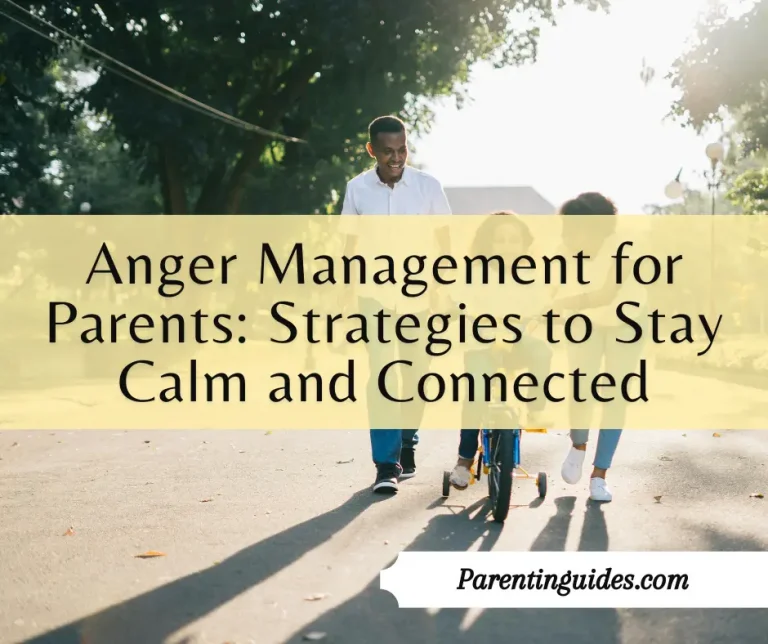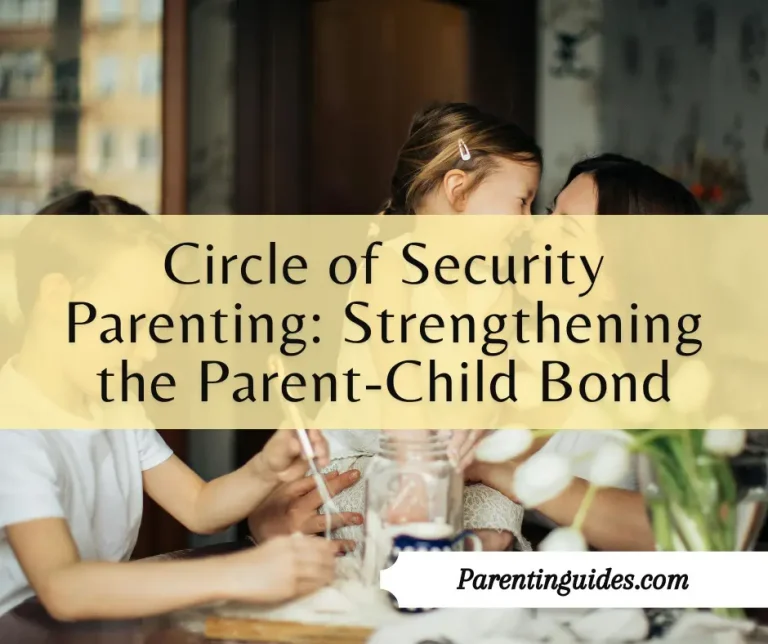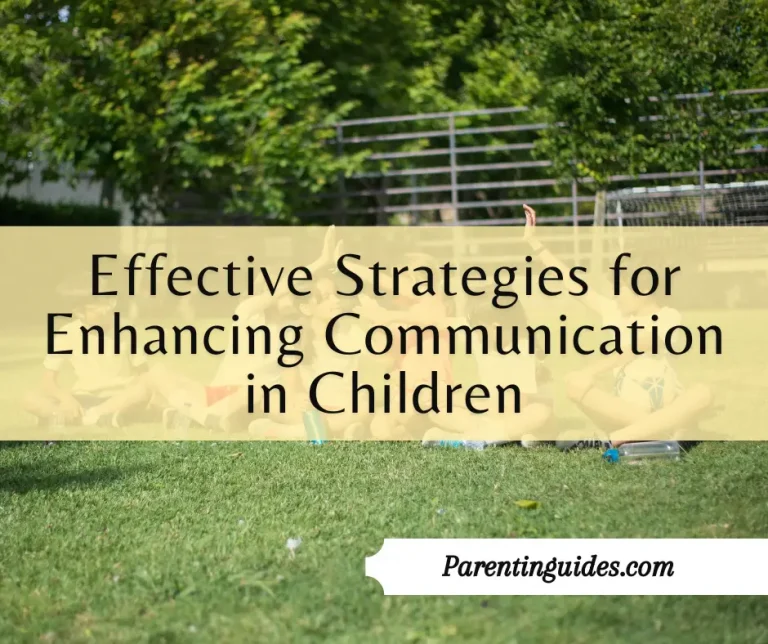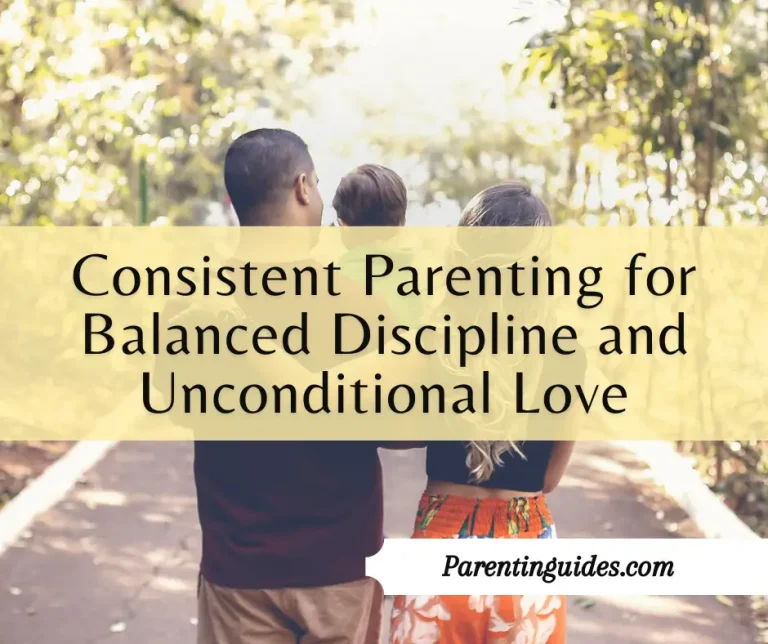As I sit down to share our story, I’m reminded of a particularly chaotic morning that perfectly captures the essence of parenting stress. It was a day like any other, except my toddler decided that breakfast was the enemy and my oldest had misplaced her homework again. My husband, usually calm, was frantically searching for his keys. I felt the weight of the world on my shoulders. This scene might sound familiar because it’s a common scenario in households across the globe. It’s these everyday moments that can accumulate, turning manageable tasks into sources of significant stress.
Parenting is undoubtedly rewarding, but it’s also filled with challenges that can stretch our emotional and physical limits. In this article, “Coping with Parenting Stress: Tips for a Healthier You,” I aim to share not just the struggles. I am also about to share the strategies that my husband and I have learned to manage stress effectively. By adopting certain techniques and mindsets, we’ve found it’s possible to transform our approach to these daily challenges. It is simply by benefiting not only ourselves but also our children.
Understanding coping with parenting stress is critical and straightforward. Simply, stress affects all aspects of our health in mental, emotional, and physical aspects. For parents, managing this stress is essential not just for our well-being but for our children’s development and happiness. Stress can make us impatient, less empathetic, and more reactive. By tackling parenting stress head-on, we can create a more supportive and loving environment for our children.
In sharing our journey and practical tips, I hope to offer you insights and methods to help navigate the troubles of parenting. This isn’t just about surviving another day. Simply, it’s about thriving and making the most of our time with our children. So, join me as we explore effective strategies and tips for coping with parenting stress, ensuring a healthier and more joyful family life.
Understanding Parenting Stress
Defining Stress in the Parenting Context
Parenting stress is a unique form of stress that arises specifically from the responsibilities and challenges of raising children. Unlike general stress, which can stem from various sources like work or personal relationships, parenting stress directly relates to the roles and expectations we hold as parents. Just last week, I found myself overwhelmed when my daughter needed help with a science project while my toddler was sick. It’s the feeling of being pulled in multiple directions simultaneously. Here, it is distinct from the pressure you might feel during a busy day at work. Coping with parenting stress involves recognizing these unique pressures and finding strategies to manage them without letting them consume us.
Common Sources of Parenting Stress
One major source of coping with parenting stress in our household is the challenge of balancing work and family life. My husband and I often discuss how our careers demand a lot from us, yet we need to save energy and time for our children. From rushing to meet deadlines to attending parent-teacher meetings, the juggling is relentless. It’s not just about managing time. It’s about managing our energy and ensuring we don’t shortchange our family or our professional obligations. This can significantly contribute to stress as we strive to fulfill both roles adequately.
Recognizing Symptoms
Recognizing the signs of parenting stress is crucial for managing it effectively. Physically, I notice tension headaches and fatigue when the stress starts getting to me. Emotionally, I find myself being short-tempered or less patient with my children, which is always a red flag. My husband sometimes experiences insomnia, lying awake planning the next day, or worrying about finances. These symptoms can vary widely, but they share common themes. Here, they take a toll on our well-being and affect how we interact with our family. Acknowledging these signs early on is the first step in coping with parenting stress, allowing us to take proactive measures before the stress escalates.
By sharing these aspects in coping with parenting stress, I hope to shed light on what parenting stress looks like. This is also about how it manifests differently from other types of stress. Understanding these elements is vital in developing strategies that address the unique challenges of parenting. By recognizing and acknowledging the sources and symptoms of parenting stress, we can begin to find more joy and less strain in our journey as parents.

Communication Strategies to Ease Stress in Coping with Parenting Stress
Improving Communication with Your Partner
One effective way my husband and I cope with coping with parenting stress is by maintaining open lines of communication. We’ve learned that when we’re transparent about our feelings and challenges, it lessens the burden on both of us. For instance, each evening we spend a few minutes discussing our day and any specific parenting challenges we encountered. This routine helps us to offload any built-up stress and ensures we’re on the same page. Also, we make it a point to support each other’s decisions in front of our children, which reinforces a united front and prevents a lot of potential stress. Keeping these channels open is crucial in managing the daily pressures that come with parenting.
Active Listening Techniques
Active listening is another key tool in our arsenal for coping with parenting stress. It involves hearing what the other person is saying, without preparing your response while they’re speaking. We practice this by giving each other undivided attention, using affirmations, and asking clarifying questions. This technique extends to our children as well. When they speak, we strive to listen with full attention. It helps us understand their needs better and reduces miscommunication and frustration. This approach has profoundly impacted our family dynamics, fostering a more empathetic and supportive environment.
Setting Expectations
In coping with parenting stress, setting realistic expectations with each other and our children has significantly helped in managing our parenting stress. Early in our parenting journey, my husband and I decided to outline what we expect from each other regarding household responsibilities and parenting roles. We revisit these expectations regularly to ensure they still work for us and make adjustments as needed. With our kids, we set clear guidelines on behavior and responsibilities, suitable for their age and ability. This clarity helps everyone know what’s expected, reducing misunderstandings and ensuring a smoother daily routine. By setting and managing expectations, we keep stress at bay and create a more peaceful home environment.
These communication strategies for coping with parenting stress have been instrumental in helping us cope with parenting stress. By improving how we interact with each other and actively listening, we’ve strengthened our relationship and improved our overall family life. Additionally, by setting clear expectations, we’ve minimized conflicts and misunderstandings, further reducing stress. Implementing these techniques in coping with parenting stress can truly transform the parenting experience. As a result, coping with parenting stress is more enjoyable and less overwhelming.
Time Management and Prioritization in Coping with Parenting Stress
Effective Planning
In our household, effective planning has been a cornerstone in coping with parenting stress. Every Sunday evening, my husband and I sit down with a cup of coffee and plan out our week. We jot down key events, deadlines, and children’s activities on a shared digital calendar that is accessible from both our phones. This practice allows us to anticipate busier days and adjust our schedules accordingly. For instance, on days packed with meetings and school events, we might decide to prepare a simple dinner or order in to ease the pressure. This proactive approach prevents last-minute scrambles and helps keep our stress levels under control.
Setting Boundaries
In coping with parenting stress, setting clear boundaries between work and family time has been essential for us in managing parenting stress. My husband and I have established ‘no work’ time zones in our home, particularly during dinner and the kids’ bedtime routines. These boundaries ensure that despite our busy schedules, we have undisturbed family time, which is crucial for our children’s emotional well-being and our own. On weekends, we try to keep work-related activities to a minimum, focusing on family outings and personal relaxation. Respecting these boundaries has significantly reduced stress and improved our family dynamics.
Delegation of Responsibilities
Delegating responsibilities effectively is another strategy we’ve found useful for coping with parenting stress. Early in our parenting journey, we agreed to divide household and parenting duties based on our strengths and schedules. For example, my husband takes the lead on finances and car maintenance, while I handle most of the meal planning and healthcare appointments for the kids. We also involve our children in age-appropriate chores, which teaches them responsibility and lightens our load. Encouraging a culture of teamwork in our family not only helps manage the daily grind but also fosters a sense of belonging and cooperation among all family members.
Incorporating these time management and prioritization strategies has greatly helped us in coping with parenting stress. By planning effectively, setting firm boundaries, and delegating responsibilities, we maintain a balanced life that benefits the entire family. These practices ensure that we manage our time wisely and keep stress at bay, allowing us to enjoy the precious moments of parenting.

Self-Care and Personal Well-being in Parenting
Importance of Self-Care
In our journey of parenting, one truth has become abundantly clear. It is simply, taking care of ourselves is not an act of selfishness but a necessity for the well-being of our entire family. Self-care directly influences our patience, empathy, and ability to manage daily challenges effectively. When I take time for myself, I notice a significant improvement in my mood and energy levels, which in turn makes me a more present and engaged parent. My husband shares a similar experience.
Simply, after his morning run, he feels more equipped to tackle his day with a positive outlook. These personal rejuvenations in coping with parenting stress are crucial. It is because they help us cope with parenting stress, ensuring we don’t reach a point of burnout.
Simple Self-Care Activities
Finding time for self-care might seem daunting amidst the whirlwind of parenting duties. But it can be woven into our daily routine with some creativity. For instance, I’ve incorporated a fifteen-minute yoga session into my morning routine. This short practice helps me center my thoughts and prepare mentally for the day ahead. Similarly, my husband finds solace in reading. Even just a few pages each night help him unwind and relax. On weekends, we make it a point to have a ‘date night’ at home after the kids are asleep. It allows us to reconnect and support each other. These simple activities are not only feasible but also effective in coping with parenting stress.
Seeking Professional Help
In coping with parenting stress, there comes a point in many parents’ lives when professional help might be necessary to cope with parenting stress effectively. For us, reaching out to a family therapist was a decision that brought many positive changes. When the stress seemed overwhelming, and our usual self-care routines were no longer sufficient, our therapist provided us with tools to manage our emotions and reactions better. This professional guidance was invaluable in helping us understand and break cycles of stress that were affecting our family dynamics. Seeking help is a sign of strength, not weakness, and it’s an important consideration for any parent feeling overwhelmed by the responsibilities of parenting.
Incorporating self-care into our lives has been essential in coping with parenting stress. Accordingly, we have found more joy and less strain in our roles as parents. These strategies not only help us individually. It also enhances the overall health and happiness of our family, proving that taking care of ourselves is one of the best things we can do for our children.
Building a Support Network
The Role of Social Support
Building a support network has been a game changer in our journey to coping with parenting stress. Having a group of people who understand the challenges you face and can offer practical advice or a listening ear makes a huge difference. For my husband and me, joining a local parenting group was the first step. It connected us with others on similar paths, creating a community that offers both emotional and logistical support. This network has been invaluable, especially when dealing with tough parenting dilemmas. Knowing you are not alone in your struggles significantly reduces the feeling of being overwhelmed and helps maintain a healthy mental state.
Finding Community
Finding a community of like-minded parents can be a lifeline. For us, it started with attending local events and workshops focused on parenting. These gatherings were not only educational. It is also a great way to meet other families. Online forums and social media groups have also been excellent resources. They allow us to connect with others at any time, which is particularly useful when facing immediate challenges that require quick advice.
Moreover, starting or joining a book club, or a fitness group for parents, can also provide both a social outlet and a way to discuss parenting in a relaxed environment. In addition, helping each other is a perfect way of coping with parenting stress.
Leveraging Family and Friends
Involving our extended family and friends has provided substantial emotional and practical support in managing and coping with parenting stress. We make it a point to schedule regular family gatherings and keep in close contact with our friends. This is especially true in those with children of similar ages. This has not only helped us in sharing responsibilities, like carpooling to school or covering for each other during emergencies.
It is also important in maintaining a social life, which is crucial for emotional health. Our friends and family are our pillars, offering advice based on their experiences, which helps us navigate our parenting challenges more effectively. This network of support ensures that we never feel isolated, making the journey of parenting much more manageable in coping with parenting stress.
By cultivating these relationships and communities, we have created a support system. Here, it also plays a critical role in how we cope with parenting stress. These networks not only provide practical help and emotional comfort. It also can enrich our family’s life, reminding us that parenting is not a journey to be walked alone.

Embracing Flexibility and Adaptability
One of the most effective strategies in coping with parenting stress is embracing flexibility and adaptability in our daily routines. This approach has allowed my husband and me to handle unexpected situations with more grace and less frustration. Simply, there have been many times when our plans were upended by a child’s illness or an unforeseen school event. Instead of clinging to our original plans, we’ve learned to adapt and rearrange our schedules without undue stress.
This flexibility extends to our parenting style as well. We understand that each child is different and what works for one may not work for another. By staying flexible, we are better able to meet each child’s unique needs. Here, it reduces tension and conflict within the family. For example, our daughter responds well to structured activities, while our son needs more free play to thrive. Recognizing and accommodating these differences helps keep the household more harmonious.
Moreover, adapting to expectations has been crucial. There are days when the house will not be perfectly tidy, or we might opt for takeout instead of a home-cooked meal. Allowing ourselves this flexibility has significantly reduced the pressure we feel, aiding enormously in coping with parenting stress. By embracing change and being willing to adjust, we create a more relaxed and supportive environment for our entire family.
Conclusion
One profound method my husband and I have found effective in coping with parenting stress is nurturing our relationships. This includes strengthening our bond as a couple, as well as our connections with each child and the community around us. Having a solid partnership allows us to share the load, emotionally and practically, making the parenting journey smoother and less overwhelming.
Amidst the demands of parenting, it’s easy to put our relationship on the back burner. However, we’ve learned that maintaining our connection is crucial in coping with parenting stress. Setting aside time for regular date nights even simple ones like a movie night at home after the kids are asleep. Here, it helps us stay connected and support each other better. This practice ensures we don’t just function as co-parents but also as partners, strengthening our family foundation.
Understanding and connecting with each of our children individually has also been vital. Each Sunday, we spend one-on-one time with each child, doing something they love. This not only helps in understanding their needs and concerns. It also builds a deeper bond, making them feel valued and supported. These moments are precious and help reduce stress by improving the overall emotional climate of our home.
Finally, extending our support network beyond our immediate family by participating in community events has enriched our lives and provided a broader perspective. Being part of community projects, school events, or local groups gives us a sense of belonging and additional support. Moreover, it is also invaluable in coping with parenting stress.
Incorporating these practices into our daily lives has significantly helped us in coping with parenting stress. By nurturing these relationships, we’ve created a supportive and understanding environment that benefits everyone in the family. It reminds us that we’re not alone in this journey, and together, we can manage the challenges that come our way.









